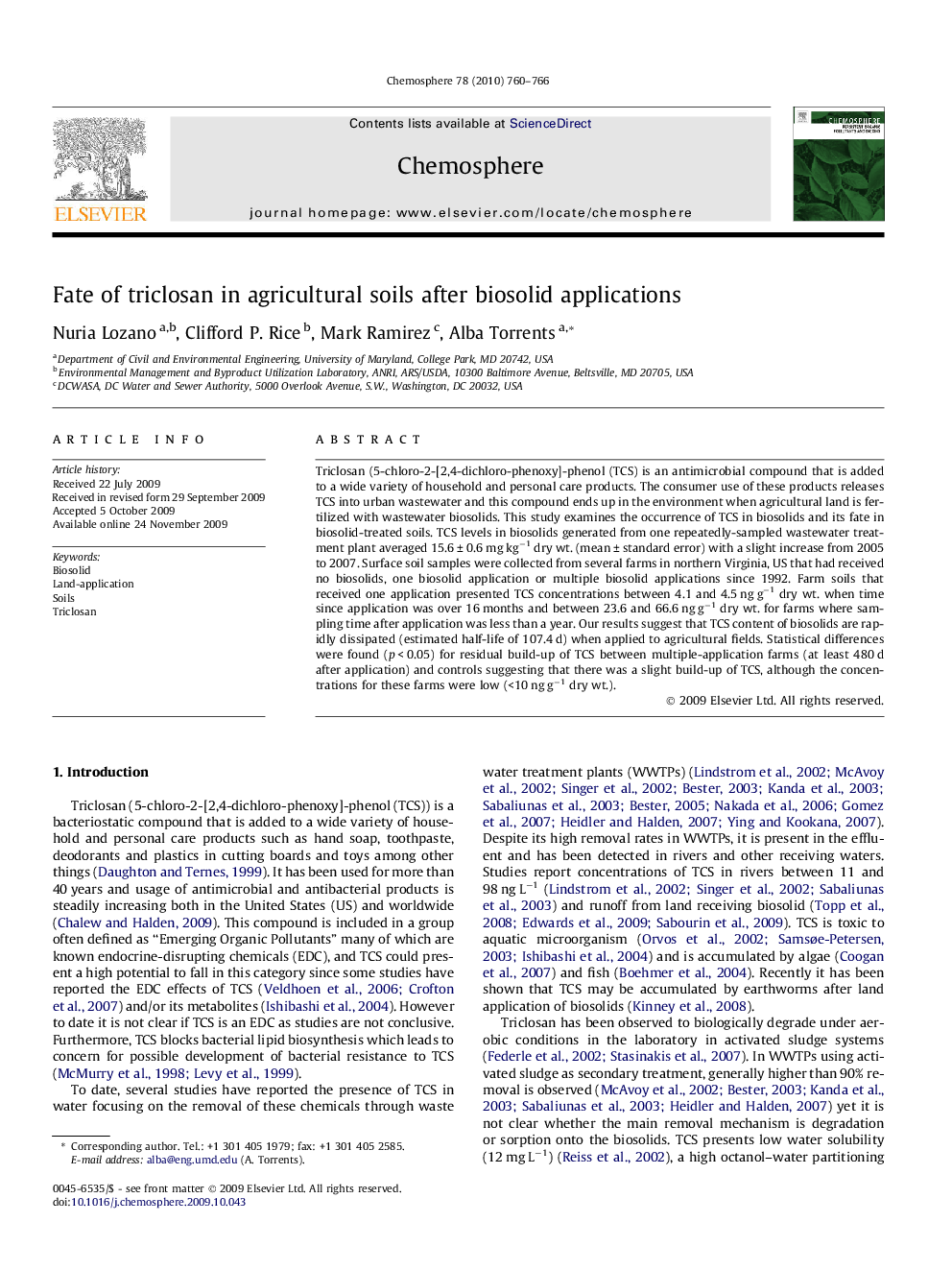| Article ID | Journal | Published Year | Pages | File Type |
|---|---|---|---|---|
| 4412185 | Chemosphere | 2010 | 7 Pages |
Triclosan (5-chloro-2-[2,4-dichloro-phenoxy]-phenol (TCS) is an antimicrobial compound that is added to a wide variety of household and personal care products. The consumer use of these products releases TCS into urban wastewater and this compound ends up in the environment when agricultural land is fertilized with wastewater biosolids. This study examines the occurrence of TCS in biosolids and its fate in biosolid-treated soils. TCS levels in biosolids generated from one repeatedly-sampled wastewater treatment plant averaged 15.6 ± 0.6 mg kg−1 dry wt. (mean ± standard error) with a slight increase from 2005 to 2007. Surface soil samples were collected from several farms in northern Virginia, US that had received no biosolids, one biosolid application or multiple biosolid applications since 1992. Farm soils that received one application presented TCS concentrations between 4.1 and 4.5 ng g−1 dry wt. when time since application was over 16 months and between 23.6 and 66.6 ng g−1 dry wt. for farms where sampling time after application was less than a year. Our results suggest that TCS content of biosolids are rapidly dissipated (estimated half-life of 107.4 d) when applied to agricultural fields. Statistical differences were found (p < 0.05) for residual build-up of TCS between multiple-application farms (at least 480 d after application) and controls suggesting that there was a slight build-up of TCS, although the concentrations for these farms were low (<10 ng g−1 dry wt.).
